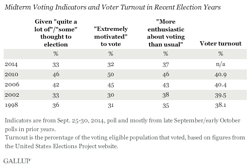NJ Bill A1080 passed the Assembly and would prohibit smoking on public beaches and in public parks. This bill would be an extension of the “New Jersey Smoke Free Air Act” and would go into effect 180 days after its enactment.
Bill sponsor, Assemblywoman Valerie Huttle, said in a press release regarding the bill, “The prohibition of smoking at public parks and beaches would better preserve the natural assets of this state by reducing litter and increasing fire safety in those areas, while lessening exposure to secondhand tobacco smoke among the public. This is the right thing to do.”
Dr. Patricia Sciscione, a specialist professor of nursing, is in favor of the bill and believes it could help public health. “Cigarette butts are a form of toxic waste since they contain many chemicals that are known carcinogens, yet they are frequently discarded into the sand or onto the ground. Immediate risks include the possibility that small children, birds, animals, and fish may ingest these butts which could be lethal for them due to the possibility of choking and/or poisoning due to the toxic chemicals they contain,” Sciscione said.
She continued, “Long-term risks exist because the filters are made of a substance that is not biodegradable and they can exist in the environment for decades causing harm to marine life, land animals, and the environment.”
Kimberlee Noordyk, a freshman social work major, was a smoker for six years but hasn’t smoked in three months. She said if she was still a smoker she would be against this bill but since quitting, she is “100 percent for it.” Noordyk said, “I would probably say that they should make designated smoking areas on the beaches like they do in amusement parks so that smokers can still smoke, but not in front of children or anyone else who gets bothered by it. Even as a non-smoker, I would still recommend the smoking areas because I can tell you from experience, if a smoker wants a cigarette, they will find a way to do so.”
Ryan Kinghorn, a junior health and physical education major said, “I’m in favor of the bill because with the research that’s already been done; it’s obvious that second hand smoke is dangerous and can cause cancer even if you’re not the one smoking.”
Kinghorn continued, “If people want to smoke and deal with their own health problems, that’s their right. But non-smokers should be allowed to go for a run around the park or lay on the beach without smoke flying into their face.”
The bill states that the supervisors will be responsible for enforcing the law. A violator will be fined $250 for a first offense, $500 for a second offense and $1,000 for every subsequent offense. Municipal courts will oversee all cases for these offenses.
Ray Bogan, a senior communication major and lifeguard at Sea Girt beach believes that beach personnel should not be used for monitoring the violations. “As a lifeguard I have more important things to do than watch for smokers if they choose to make lifeguards enforce this law. My focus is the safety of those in the water.”
Sciscione said, “I fear there will be a lot of vigilante behavior during the initial period of adoption to the bill resulting in arguments between smokers and non-smokers. It will be forcing a change in human behavior, something that does not come easily. There are strong opinions on both sides—smokers feel they have the right to smoke in outside areas and non-smokers contend that even though these are outdoor areas, the cigarette smoke is easily smelled even from long distances. I do believe that over time the bill will get easier to enforce as the smokers adapt to the forced change, and some may even quit because of it, which would be an added benefit.”
Rahmonn McMillan, a freshman fine arts/animation said, “I’m a non-smoker who hates the smell of smoke, but I think this bill is unnecessary. Parks and beaches are usually wide open spaces. If I’m bothered by smoke, I can move somewhere else on the beach or park.”
Sciscione said, “This law is in the interest of public health for everyone, non-smokers and smokers alike, and should be vigorously enforced. Many children play in our parks and on beaches and we need to protect them not only from exposure to the second-hand smoke and the possibility of handling and ingesting the discarded butts, but also from witnessing the act of smoking itself. Hopefully we can start to decrease the number of future smokers in our state. As a nurse, I know that there are many chronic heart and lung disorders that result from smoking and too many risks inherent in second-hand smoke to justify that non-smokers should be exposed to it if there are ways to protect them. It’s a “win-win” for all.”
The bill’s other primary sponsor, Assemblywoman Angelica Jimenez said in a press release, “This is common sense approach to maintain the beauty and pristine quality of our parks and beaches while also protecting public health. We’re all be better off if we get this done.”
Professor James Nickels, a marine scientist for the Urban Coast Institute, said that the impact of this bill would also be environmental. “Many people don’t realize that when it rains, water flowing through our streets, down our drains and through our storm water pipes ends up in our harbors, beaches and rivers. Storm water is not treated so all litter and cigarette butts carried by storm water are dumped directly into these waterways.”
According to Nickels, 95 percent of the litter on beaches comes from suburban streets through the storm water system and this litter can cause harm to marine life.
Nickels continued, “Cigarette butts can take up to 12 months to break down in freshwater and up to 5 years to break down in seawater. Birds and aquatic animals can mistake the butts as food, resulting in serious digestive problems that may lead to death. Butts have been found in the stomachs of young birds, sea turtles and other marine creatures.”
Dr. Alan Steinberg, an adjunct professor of political science who teaches environmental policy said, “I think this appears to be a bill designed for quality of life reasons. Smoking definitely has a negative effect on quality of life… It’s not only a negative effect on the smoker but also the secondary impact on the people who are dying nearby them who don’t smoke. It would also help keep the beaches clean from cigarette butts that are thrown aside by smokers on the beach.”
Adam Sharkey, a senior business administration major said, “This is a very roundabout way of trying to outlaw smoking outright.”
Pat Layton, a junior communication major said, “I think it’s a good idea because I think it will clean up our beaches a little. One time in Belmar, I had a lady light up a cigarette who was sitting 10 feet away from me, and it blew right in my face.”
Sciscione said that secondhand smoking is a major source of pollution and health problems. “There is no ‘risk-free’ level of second-hand smoke and no segment of our population that is not at risk—exposure causes risks to cardiovascular health and many types of lung disease including lung cancer. There are risks to pregnant women who are smokers or who are live with smokers, such as having an increased incidence of premature births and a higher risk of their infants dying from sudden infant death syndrome.”
Sciscione continued, “Children exposed to secondhand smoke on a regular basis have a higher incidence of respiratory disorders, ear infections, and asthma and in general get sick more often than children of non-smokers. Lawmakers have a public health obligation to protect the rights of non-smokers who want to enjoy the outdoors without the exposure to this toxic substance.”
Brad Rubin, a senior criminal justice major, said, “I think it would make the beaches more enjoyable if smoke-free. I hate laying on the beach and the guy next to me decides to light up a cigar with no regard for the people near him.”
However, this bill will definitely be opposed by many, especially those being the smokers of the beach and park visitor population. It will certainly receive some flak by this group because they want to be able to light up and enjoy the beach with everyone else. However, as previously stated, I feel that these people (not to overgeneralize) don’t have much regard for others and how they feel about secondhand smoke and its health risks.”
Rubin does have reservations whether the bill will be enforced. “I know that not all laws are strictly adhered too. Everyone breaks the law at some point in their lives. This kind of a law will definitely be broken a lot. I feel that many people will simply not care and will smoke anyways. The benefit of this would be increased revenue for the towns from those who are cited by the local police/park police. Maybe after a period of time where everyone is aware of the law, more people will adhere to it especially if it strictly enforced (posted signs, etc.).”
IMAGE TAKEN from www.vapor4life.com



